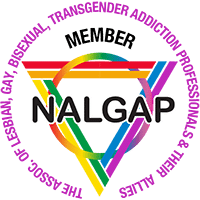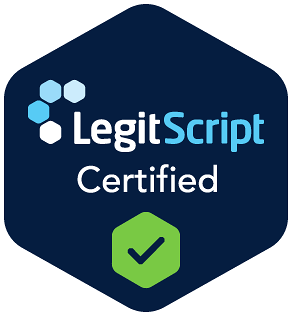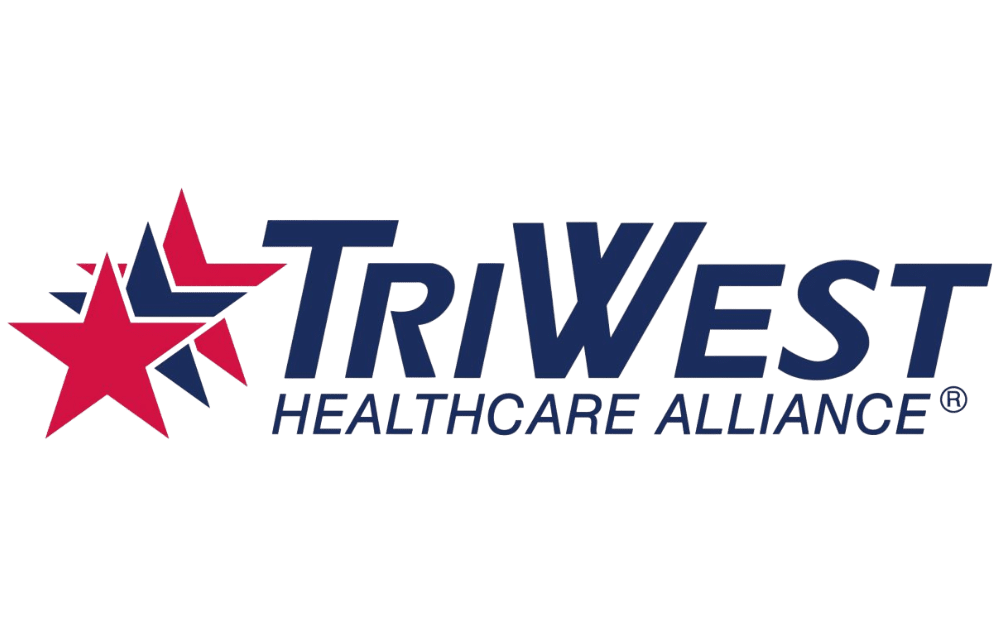Long term treatment centers
Comprehensive Care for Lasting Recovery
Long term treatment centers offer a holistic approach to addiction recovery, emphasizing not just detoxification but a full spectrum of care that supports lasting change. At Mile High Recovery Center, located in the heart of Denver, we recognize the value of a multifaceted treatment plan tailored to the unique needs of every individual. With an integrated housing-to-treatment pipeline, Mile High stands out as a beacon of hope for those seeking comprehensive and continuous support on their recovery journey.
This personalized treatment model combines medical management with experiential therapies that align with our community-based approach. Patients can access a range of services, from residential treatment to intensive outpatient programs, ensuring that care is available across all stages of recovery. This seamless transition through phases of treatment serves to reinforce the foundation for long-term recovery and reintegration into daily life.
Cutting-Edge Therapies and Interventions
Long term treatment centers like Mile High integrate evidence-based clinical therapies, including Cognitive Behavioral Therapy (CBT) and Dialectical Behavior Therapy (DBT), with creative, hands-on modalities. Adventure therapy, equine-assisted activities, and art and music sessions are designed to engage the body and mind in a dynamic healing process. These therapies address both the psychological and emotional components of addiction, fostering resilience and promoting personal growth.
Our center also incorporates specialized interventions for co-occurring mental health disorders such as anxiety, PTSD, and bipolar disorder. Through a comprehensive dual-diagnosis approach, Mile High provides support that attends to the complexities of mental health alongside substance use disorders. Our commitment to innovation in treatment ensures that our clients benefit from the latest advancements while on their path to recovery.
Medication-assisted treatment, including options like Suboxone and Vivitrol, is an integral part of our approach, offering medical support to ease withdrawal symptoms and reduce cravings. These medications are paired with therapeutic interventions to optimize outcomes and sustain recovery.
Personalized Care and Diverse Community
Mile High Recovery Center prides itself on its inclusive and supportive environment that embraces diversity. Our programs are tailored to meet the needs of various populations, including adults and adolescents, members of the LGBTQ community, and military beneficiaries through Tricare. With a focus on family therapy and community reintegration, we provide a nurturing space where all clients feel seen and supported.
Our team, comprised of clinicians with lived recovery experience, brings empathy and understanding to every interaction. Their firsthand knowledge of the challenges of recovery enhances the personalized care each client receives, building trust and encouraging open communication. This environment fosters a sense of belonging and partnership in recovery efforts, strengthening the support network available to every client.
Strategic Partnerships and Accessibility
One of the distinguishing features of Mile High Recovery Center’s model is our collaboration with local healthcare providers and insurers. With accreditation from the Joint Commission and LegitScript verification, our center upholds rigorous standards of care, facilitating seamless transitions of care with confidence. Collaboration with major insurance carriers like Aetna, Cigna, and Blue Cross Blue Shield ensures that clients have access to in-network reimbursement and streamlined insurance verification processes.
This dedication to quality and accessibility supports our mission to make recovery attainable for all individuals seeking help in the Denver metro area. Our urban yet serene location allows clients to explore therapeutic activities both indoors and amidst nature, reflecting our philosophy of integrated, environmental healing.
Holistic Approach to Sober Living
At the core of Mile High’s success is our comprehensive sober living pipeline. This model incorporates structured sober living homes into the continuum of care, reinforcing the progression from treatment to independent living. Our nine sober living homes provide a safe and supportive environment where clients can practice the skills and strategies acquired during treatment.
Our active alumni community remains an invaluable asset to our program, embodying the long-term outcomes we strive for. Alumni support is a cornerstone of our approach, offering ongoing encouragement and mentorship that reinforces the principles of sobriety and personal development.
Navigating the Range of Treatment Options
Choosing the right treatment approach can be overwhelming; however, Mile High guides clients through the myriad of options available at long term treatment centers. Our offerings include residential treatment, short-term residential, partial hospitalization (PHP), intensive outpatient (IOP), and outpatient programs.
Each program level is tailored to suit the client’s stage of recovery and personal needs, allowing for flexibility and adaptation as they progress. Our evidence-based and experiential therapies are woven throughout all treatment levels, ensuring a consistent and comprehensive therapeutic experience that supports enduring recovery.
Outcome-Driven Care and Sustained Recovery
At Mile High, we believe in outcome-driven care that emphasizes measurable progress and sustainable recovery. Our multi-phase treatment model focuses on life skills development and accountability, promoting behavioral and attitudinal changes that are essential for long-term success.
We are dedicated to helping clients rebuild trust, mend relationships, and embark on a future filled with potential. As clients move through each phase of our program, they are equipped with the tools and confidence needed to face life’s challenges without resorting to substance use.
Our commitment to sustained recovery is reflected in the genuine, lasting change experienced by our clients, many of whom describe their time at Mile High as transformative. This process is supported by our comprehensive aftercare and alumni programs, which provide a continuum of support beyond initial treatment.
What constitutes comprehensive care in long-term treatment centers, and how does it support lasting recovery?
Comprehensive care in long-term treatment centers like Mile High Recovery Center involves a holistic approach that encompasses not only detoxification but a full spectrum of treatment services. This means integrating medical management with experiential and therapeutic modalities that are tailored to the individual. For example, someone recovering from opioid addiction might benefit from medication-assisted treatments like Suboxone or Vivitrol, combined with therapies such as Cognitive Behavioral Therapy (CBT) or adventure therapy. Comprehensive care facilitates a seamless transition across different phases of recovery and ensures continuous support. By doing so, the client builds a strong foundation for long-term recovery and eventual reintegration into daily life.
Consider a patient named Alex who struggled with alcohol and anxiety. Through Mile High’s integrated approach, Alex could address both issues simultaneously, receiving therapy for anxiety while also participating in sober living homes that reinforced coping strategies learned during treatment. This dynamic and multifaceted approach helps instill confidence and resilience, paving the way for sustained recovery.
How can you apply this comprehensive approach to your recovery journey, or that of a loved one?
How do cutting-edge therapies and interventions enhance addiction treatment outcomes?
Cutting-edge therapies and interventions, such as those employed at Mile High Recovery Center, are designed to address the multifaceted nature of addiction by engaging clients both mentally and physically. Evidence-based practices like CBT and Dialectical Behavior Therapy (DBT) are combined with creative and experiential therapies, including adventure therapy and equine-assisted activities. These approaches not only treat the psychological aspects of addiction but also promote personal growth and resilience.
For instance, a client dealing with PTSD and substance use disorder might find relief in equine-assisted therapy, which has been shown in studies to reduce symptoms of trauma and improve emotional regulation. Engaging in artistic activities like music therapy can also facilitate emotional expression and healing.
It’s important to consider: Which therapies resonate most with you on your recovery journey, and how can they be incorporated into your treatment plan?
What role does personalized care play in a successful recovery journey?
Personalized care is essential in a successful recovery journey as it ensures that treatment is tailored to meet the unique needs of every individual. At Mile High Recovery Center, the treatment plan is specifically designed to accommodate diverse populations, including adults, adolescents, and members of the LGBTQ community, among others.
Imagine a teenager named Sam who struggles with methamphetamine addiction and comes from a military family. Mile High’s approach would consider Sam’s background, offering specialized family therapy and leveraging their experience with military beneficiaries through Tricare. This personalized care fosters a supportive environment where clients feel understood and valued, enhancing the effectiveness of their treatment.
Reflect on how a personalized treatment approach could impact your own or a loved one’s recovery process.
How do strategic partnerships and accessibility improve the treatment experience at facilities like Mile High Recovery Center?
Strategic partnerships and accessibility are crucial components of the treatment experience as they ensure that clients have streamlined access to necessary services. At Mile High Recovery Center, partnerships with local healthcare providers and major insurance carriers like Aetna and Cigna facilitate easy transitions of care and secure financial support through insurance reimbursement.
These collaborations allow for a smoother treatment process, minimizing financial stress and administrative hurdles for clients. Moreover, being accredited by institutions like the Joint Commission ensures that the center meets high standards of care, providing clients with confidence in their treatment journey.
How important do you think these partnerships and accessibility are in ensuring a seamless treatment experience?
What is the significance of a holistic approach in sober living programs?
A holistic approach in sober living programs, such as those at Mile High Recovery Center, is pivotal because it supports the individual’s overall well-being, encompassing physical, mental, and emotional health. This approach integrates structured sober living homes, where clients can practice life skills and coping mechanisms in a supportive environment.
Take, for example, a client who has completed residential treatment. Transitioning to a sober living home allows them to continue applying what they’ve learned, surrounded by peers who encourage accountability and growth. In this setting, they participate in community activities and receive ongoing mentorship from an active alumni community.
Have you considered how a holistic approach could enhance long-term recovery for yourself or someone you know?
What challenges might individuals face when navigating the range of treatment options available at long-term treatment centers?
Navigating the range of treatment options at long-term treatment centers can be overwhelming, but centers like Mile High Recovery Center simplify this process. By offering a variety of programs such as residential treatment, partial hospitalization, and outpatient programs, individuals can find a plan that aligns with their unique needs and stage of recovery.
For someone like Lucy, who is transitioning from intensive inpatient care to a less intensive outpatient program, having a continuum of care ensures she receives the right level of support at each stage. This flexibility allows her to gradually gain independence while still having access to necessary resources and support.
When considering treatment options, what factors are most important for you to achieve a successful recovery?
How does outcome-driven care contribute to sustained recovery?
Outcome-driven care is a cornerstone of sustained recovery as it focuses on measurable progress and long-term success. At Mile High Recovery Center, this approach includes a multi-phase treatment model that emphasizes life skills development and accountability.
Clients like David, who entered the program seeking to overcome a heroin addiction, benefit from a structured path that helps mend relationships and build a future without substance reliance. As he moves through the program, David gains the tools and confidence to tackle life’s challenges independently.
What would achieving sustained recovery mean for you or a loved one, and how might outcome-driven care help reach that goal?
Resources
- Substance Abuse and Mental Health Services Administration (SAMHSA) – SAMHSA is the leading agency within the U.S. Department of Health and Human Services focused on improving behavioral health. They provide resources and information on mental health and substance abuse treatment.
- National Institutes of Health (NIH) – NIH is the largest biomedical research agency in the world, conducting research on various health topics, including addiction and substance abuse. They offer valuable information on addiction treatment and recovery.
- National Institute on Drug Abuse (NIDA) – NIDA is a component of the NIH focused on addressing the science of drug abuse and addiction. They fund research to advance addiction treatment and provide educational resources.
- Centers for Disease Control and Prevention (CDC) – The CDC is a national public health institute in the United States. They offer data, statistics, and resources on substance abuse and addiction, as well as information on related health issues.
- National Alliance on Mental Illness (NAMI) – NAMI is a grassroots mental health organization dedicated to building better lives for those affected by mental illness. They provide support, education, and advocacy for individuals and families dealing with mental health conditions.
















